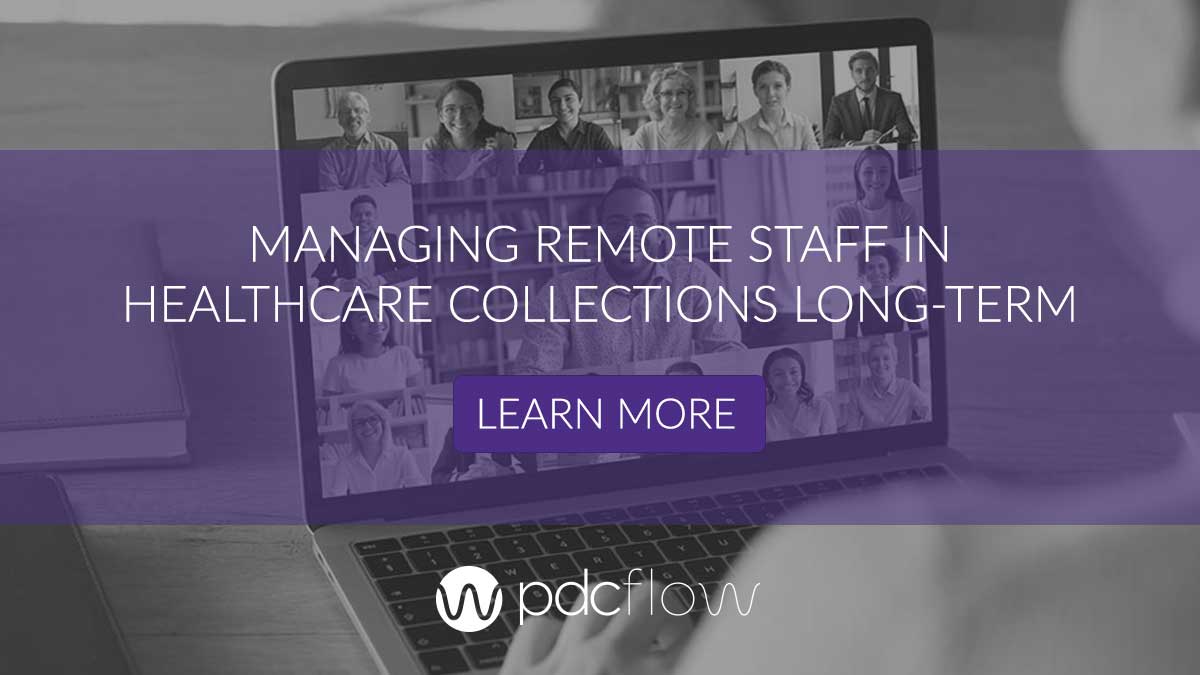In 2019, an article from NPR covered healthcare outsourcing for collections, the practice of hospitals suing patients and the financial strain it may cause. Since the pandemic, there have been several more news stories on healthcare collection tactics, bringing up the ethics of whether or not they should be taking place.
Healthcare organizations care about the wellbeing of their patients. They must balance this, however, with the reality of collecting payments to keep operations running. If a patient has a bad experience while paying their bill, this can erode trust or lead them to find another provider. Dissatisfaction can also lead to negative reviews, costing them even more business in the future.
These healthcare systems trust you to act as representatives who can collect from late-paying patients who may also be experiencing personal trauma or financial distress. It is your responsibility to collect with compassion and represent your clients with integrity.
Client Concerns About Collection
Aggressive Collection
Clients want your agency to be good at what you do but not at the expense of their reputation. If your agency is known for being harsh or has BBB complaints for harassing consumers, you may not be their first choice. When speaking to potential healthcare clients, consider showing them training materials or sample call scripts you give agents geared towards using positive language and improving call satisfaction:
- Practicing empathy during calls
- Using validating language
- Deescalation tactics
Poor Negotiation Training
Show Clients You're Informed
Laws and regulations are always changing. Clients need to know your agency is up to date and can remain compliant no matter what. Updated policy and procedure processes and a strong compliance department are great assurances. Some collection compliance concerns health systems may worry about are:
- HIPAA - HIPAA compliance (especially now that many call centers are operating remotely) is a serious concern for health systems. Be familiar with HIPAA compliance and choose software tools that reduce risk whether agents work on site or remotely.
- State privacy laws - Depending on where you or your consumers are located, state laws – such as the California Consumer Privacy Act (CCPA) – may apply.
- PCI compliance - Healthcare systems that use your outsourced services for payment collection are trusting you to keep their patients’ sensitive payment data safe.
- CFPB new debt collection rule - Those outsourcing debt collection services depend on you to maintain the standards of the CFPB. Be prepared to comply when the new rule goes into effect.
- State debt collection mandates - Many states have provided their own rules on debt collection during the pandemic. Make sure you are well-versed in all those that impact you and your clients.

Strategies to Meet Client Expectations
Collector Training
Lean on Associations
Invest in Technology
Technology can be used as a differentiating factor when looking to win healthcare outsourcing business. Taking advantage of software like PDCflow’s FLOW Technology, can set you apart from the competition.
- Immediate payments - Captures payments and authorizations immediately while consumers are still on the phone, allowing patients to privately enter payment information while agents stay in control of the call.
- HIPAA and PCI compliant - protect patient health information and sensitive credit card data whether agents are operating from the office or working remotely.
- Increase engagement in the patient financial experience - Use the digital communication channels your patients prefer – email and text.
For more information on how FLOW Technology can reduce your risk, keep agents in control and help you maintain compliance, download the FLOW Technology for Healthcare Solution Brief.







